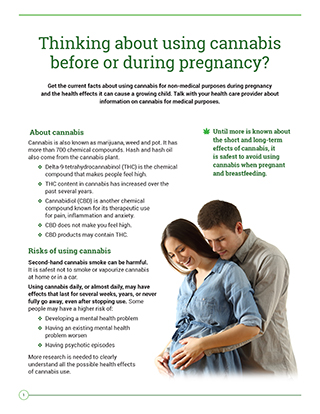
Pregnancy and Marijuana Use: A Comprehensive Examination
Introduction
Marijuana, also known as cannabis, is a psychoactive drug derived from the Cannabis sativa plant. It has been used for centuries for recreational, medicinal, and spiritual purposes. In recent years, there has been a growing debate about the safety of marijuana use during pregnancy. This article aims to provide a comprehensive examination of the available scientific evidence on the effects of pregnancy smoking weed, exploring both the potential risks and benefits.
Prevalence of Marijuana Use During Pregnancy
Marijuana use during pregnancy is a significant public health concern. Studies have shown that approximately 10-15% of pregnant women in the United States use marijuana. This prevalence is higher among certain populations, such as young women, women of color, and women with lower socioeconomic status.
Effects on Fetal Development
Numerous studies have investigated the potential effects of marijuana use during pregnancy on fetal development. While some studies have found no significant adverse effects, others have reported associations with various developmental issues.
- Low Birth Weight: Several studies have linked marijuana use during pregnancy to an increased risk of low birth weight. Low birth weight is associated with an increased risk of infant mortality, developmental delays, and long-term health problems.
- Preterm Birth: Marijuana use has also been associated with an increased risk of preterm birth, which occurs before 37 weeks of gestation. Preterm birth can lead to a range of health problems, including respiratory distress syndrome, cerebral palsy, and developmental delays.
- Congenital Anomalies: Some studies have suggested that marijuana use during pregnancy may increase the risk of certain congenital anomalies, such as cleft lip and palate. However, the evidence for this association is limited and inconclusive.
Effects on Maternal Health
In addition to its potential effects on fetal development, marijuana use during pregnancy can also have adverse effects on maternal health.
- Hyperemesis Gravidarum: Marijuana use has been linked to an increased risk of hyperemesis gravidarum, a severe form of morning sickness that can lead to dehydration and malnutrition.
- Placental Abruption: Some studies have suggested that marijuana use during pregnancy may increase the risk of placental abruption, a condition in which the placenta separates from the uterine wall before delivery. Placental abruption can lead to premature birth, fetal distress, and maternal hemorrhage.
- Postpartum Depression: Marijuana use during pregnancy has also been associated with an increased risk of postpartum depression, a mood disorder that can occur after childbirth.
Benefits of Marijuana Use During Pregnancy
Despite the potential risks associated with marijuana use during pregnancy, some studies have also suggested that it may have certain benefits.
- Nausea and Vomiting: Marijuana has been shown to be effective in reducing nausea and vomiting during pregnancy, particularly in women with hyperemesis gravidarum.
- Pain Relief: Marijuana may also provide pain relief during pregnancy and labor.
- Appetite Stimulation: Marijuana has been shown to stimulate appetite, which can be beneficial for women who are experiencing weight loss or malnutrition during pregnancy.
Recommendations for Pregnant Women
Based on the available scientific evidence, the American College of Obstetricians and Gynecologists (ACOG) recommends that pregnant women avoid marijuana use. ACOG states that "there is no safe level of marijuana use during pregnancy."
Conclusion
The use of marijuana during pregnancy is a complex issue with both potential risks and benefits. While some studies have suggested that marijuana may have certain benefits, such as reducing nausea and vomiting, the overall evidence indicates that it can also have adverse effects on fetal development and maternal health. Therefore, pregnant women are advised to avoid marijuana use to ensure the best possible outcomes for both themselves and their babies.
Additional Considerations
- Secondhand Smoke: Pregnant women should also avoid exposure to secondhand marijuana smoke, as it can contain harmful chemicals that can affect both the mother and the fetus.
- Legalization: The legalization of marijuana in some states has led to increased access to the drug. However, it is important to note that the legalization of marijuana does not change the recommendations against its use during pregnancy.
- Research Needs: Further research is needed to better understand the effects of marijuana use during pregnancy, particularly in the context of different patterns of use, dosage, and timing of exposure.